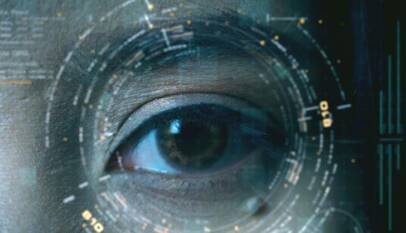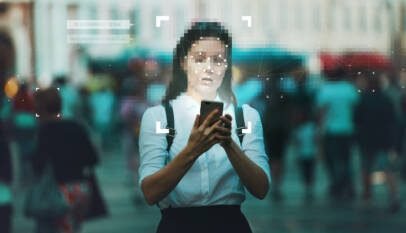NEW YORK – A controversial face recognition company that’s built a massive photographic dossier of the world’s people for use by police, national governments and — most recently — the Ukrainian military is now planning to offer its technology to banks and other private businesses.
Clearview AI co-founder and CEO Hoan Ton-That disclosed the plans Friday to The Associated Press in order to clarify a recent federal court filing that suggested the company was up for sale.
“We don’t have any plans to sell the company,” he said. Instead, he said the New York startup is looking to launch a new business venture to compete with the likes of Amazon and Microsoft in verifying people’s identity using facial recognition.
The new “consent-based” product would use Clearview’s algorithms to verify a person’s face, but would not involve its ever-growing trove of some 20 billion images, which Ton-That said is reserved for law enforcement use. Such ID checks that can be used to validate bank transactions or for other commercial purposes are the “least controversial use case” of facial recognition, he said.
That’s in contrast to the business practice for which Clearview is best known: collecting a huge trove of images posted on Facebook, YouTube and just about anywhere else on the publicly-accessible internet.
Regulators from Australia to Canada, France and Italy have taken measures to try to stop Clearview from pulling people’s faces into its facial recognition engine without their consent. So have tech giants such as Google and Facebook. A group of U.S. lawmakers earlier this year warned that “Clearview AI’s technology could eliminate public anonymity in the United States.”
Despite opposition from lawmakers, regulators, privacy advocates and the websites it scrapes for data, Clearview has continued to rack up new contracts with police departments and other government agencies. In the meantime, its growing database has helped Clearview’s artificial intelligence technology learn and grow more accurate.
One of its biggest known federal contracts is with U.S. Immigration and Customs Enforcement — particularly its investigative arm, which has used the technology to track down both the victims and perpetrators of child sexual exploitation. Clearview in March also started offering its services for free to the Ukrainian military, in part to help identify dead Russian soldiers using Clearview’s repository of about 2 billion images scraped from Russian social media website VKontakte.
“They’ve been able to identify dead bodies, even with facial damage,” Ton-That said Friday.
The official minutes from a March 17 hearing in a Chicago federal court said that…
Read The Full Article at Click Orlando














